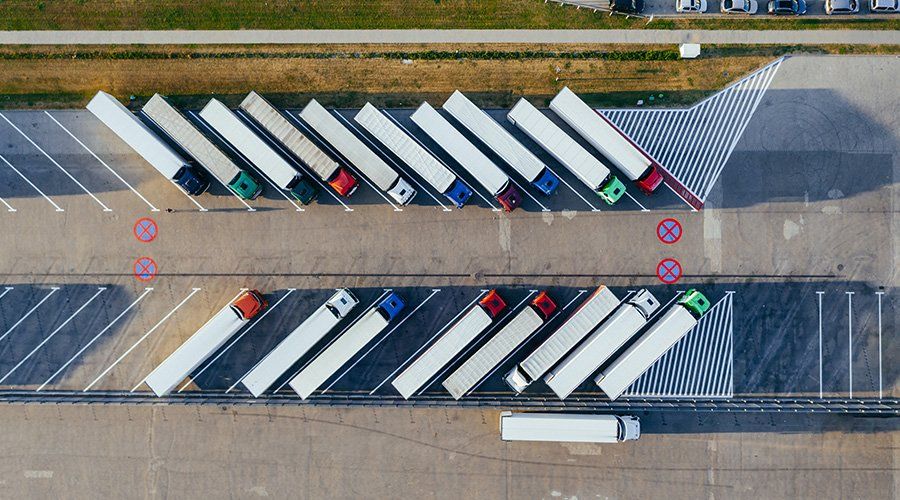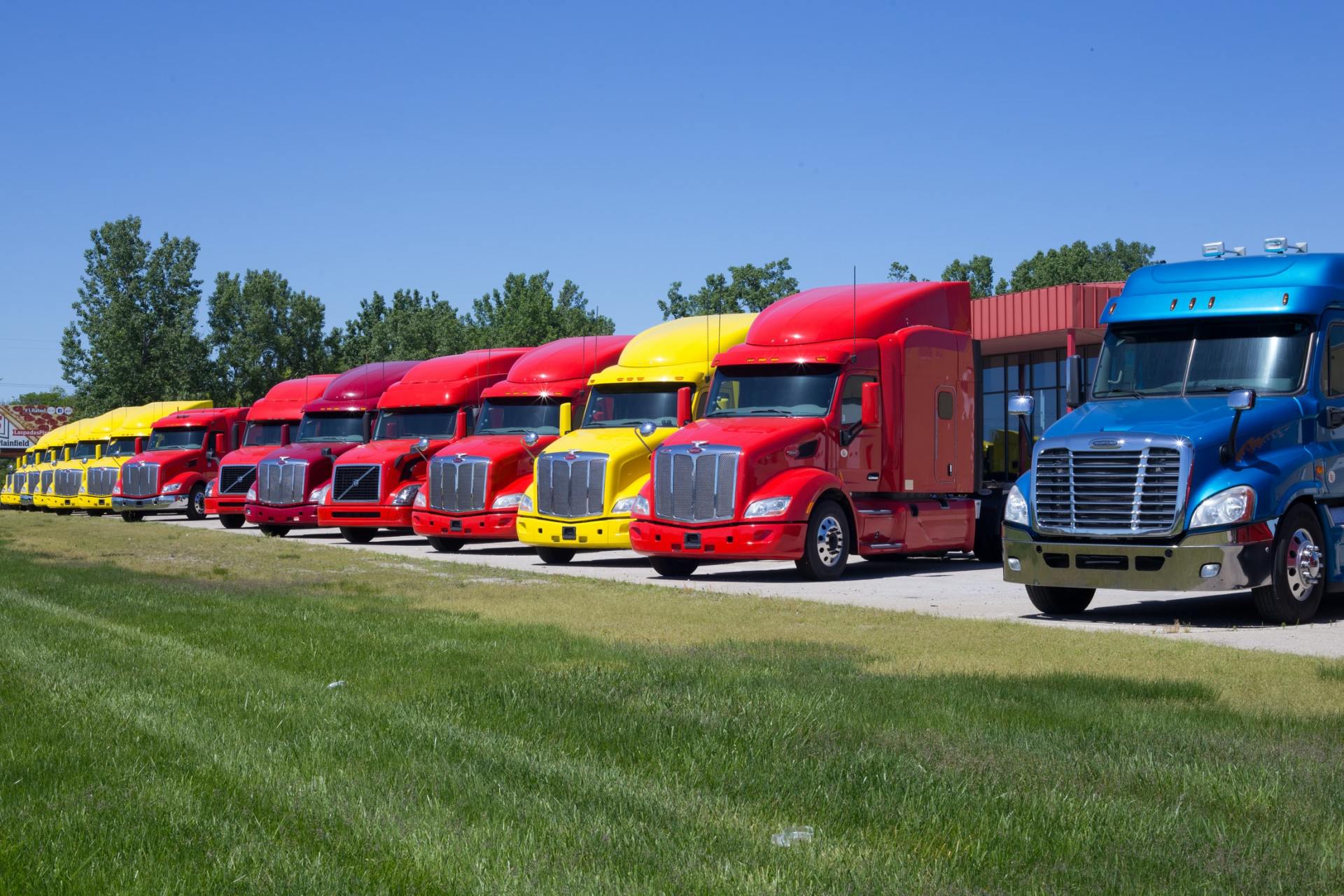As a big supporter of managing a fleet of well-maintained, safe trucks, Gold Star looks forward to the International Roadcheck every year. This three-day event focuses on motor carrier, vehicle, and driver safety. In 2021, it will run from May 4th to May 6th. (See Below For Suggestions On Being Prepared For Inspection)
The Commercial Vehicle Safety Alliance (CVSA), a nonprofit organization made up of motor vehicle safety officials and industry representatives, leads the cause. Over a 72-hour period, tens of thousands of commercial vehicle inspections will occur across the continent. It is the “largest targeted enforcement program on commercial motor vehicles in the world,” boasting that “nearly 15 trucks or buses [are] inspected, on average, every minute across North America” during the event (per the
CVSA website).
The History
International Roadcheck began in 1988. In addition to the 1.4 million inspections it’s conducted during that time, the CVSA uses the event to educate both those of us in the industry and the general public on the incredible importance of safe fleet operation and, specifically, the roadside inspection program.
In 2020, International Roadcheck conducted 50,000 inspections in Canada, Mexico, and the United States, finding an out-of-service rate of
20.9%, with a focus on driver requirements. That number was up compared to
17.9% in 2019, when the focus was on steering and suspension systems.
The Process
Inspectors put commercial vehicles through the 37-step procedure that makes up the North American Standard Level I Inspection. This inspection is focused primarily on driver operating requirements and vehicle mechanical fitness.
2021 Focus
This year, the driver operating requirement category of focus will be hours of service, and the mechanical fitness category of focus will be lighting.
This means that the rules that limit the number of hours a driver may spend driving (and the minimum amount of rest between driving stints) will be under scrutiny.
The lighting requirement will inspect the headlamps, tail lamps, clearance lamps, identification lamps, license plate and side marker lamps, stop lamps, turn signals, and lamps on projecting loads. Per the
2021 International Roadcheck flyer, “all required lighting devices are inspected for proper color, operation, mounting, and visibility” and “the condition and location of reflectors and retroreflective sheeting are also inspected.”
Preparing for International Roadcheck 2021
Be sure that your drivers are prepared for this “blitz” of inspections. In addition to the regular maintenance you should be doing on your fleet proactively (link to Commercial Vehicle Maintenance Checklist: 3 Priorities That Will Save You Money), you should also double check that your drivers have the proper documentation, records, and devices on hand. That list includes roadside view ready ELD, commercial driver’s license, medical certificate (including waivers), proof of periodic inspection documentation, and all load-related paperworking.
Experts also stress the importance of a polite, professional demeanor from your drivers during the inspections. Though there might be some frustration because it is cutting into their driving time, it’s important to remember that the inspectors and troopers are also just doing their jobs. Defensive, combative attitudes might result in longer delays or even fines.
Remember the Reason for International Roadcheck
Ultimately, the goal behind International Roadcheck is to keep everyone—from the public to your drivers—protected by removing unsafe, out-of-compliance commercial vehicles from the road. Properly maintained vehicles keep your team safe, other people on the road safe, and your business safe because it cuts back on expensive roadside emergencies, accidents, and downtime.
Mark your calendars for the International Roadcheck May 4-6, 2021. Over this 72-hour period, commercial motor vehicle inspectors in jurisdictions throughout North America will conduct inspections on commercial motor vehicles and drivers.
During International Roadcheck, inspectors will primarily conduct a procedure that includes two main inspection categories: an examination of driver operating requirements and vehicle mechanical fitness. This year, inspectors will focus on one driver operating requirement category (Hours of Service) and one vehicle mechanical fitness category (Lighting).
GENERAL INSPECTION PREPARATION:
Prepare yourself and your drivers
- Always wear your seat belt
- Have your CDL
- Have your Medical Examiner’s Certificate (as required)
- Maintain professionalism
Have these items readily available:
- A copy of your company’s insurance certificate in the tractor
- A copy of your company’s Hazardous Materials Certificate in the tractor (if applicable)
- A current, up-to-date permit book
- A charged and secure fire extinguisher in the tractor
- The required emergency equipment in the tractor (three reflective triangles)
- Proof of annual inspection for all equipment, including trailers
Prepare your company’s equipment:
- Keep your company’s vehicle(s) neat and clean
- Conduct proper and thorough pre-trip, on road and post-trip inspections
Pay particular attention to:
- Vehicle lighting
- Brakes
- Wheels, tires and rims
- Observable defects
DRIVER REQUIREMENTS – HOURS OF SERVICE:
- Drivers of commercial property-carrying vehicles and passenger-carrying vehicles are subject to rules that limit the hours spent driving and working and regulate the minimum amount of time drivers must rest between driving shifts. Canada, Mexico and the U.S. all have strict Hours of Service regulations in place to help reduce the occurrence of driver fatigue.
For Hours of Service, Ensure You Know
- The type of ELD installed in the vehicle, per the ELD mandate in December 2019
- How to provide instructions to the Inspector to transfer Records of Duty Status electronically
- How to display required and requested information on your ELD
For more information on Hours of Service, visit the FMCSA’s Hours of Service webpage.
VEHICLE REQUIREMENTS – LIGHTING:
- Lighting devices include headlamps, tail lamps, clearance lamps, identification lamps, license plate and side marker lamps, stop lamps, turn signals and lamps on projecting loads. All required lighting devices are inspected for proper color, operation, mounting and visibility. The condition and location of reflectors and retroreflective sheeting are also inspected. For more information on Lamps, Reflective Devices, and Electrical Wiring visit 49 CFR 393 Subpart B.
Prepare for International Roadcheck 2021 today. And if you’re looking to improve your business, remember Gold Star. We have all of your trucking needs in one place.
Photo by Quintin Gellar from Pexels









